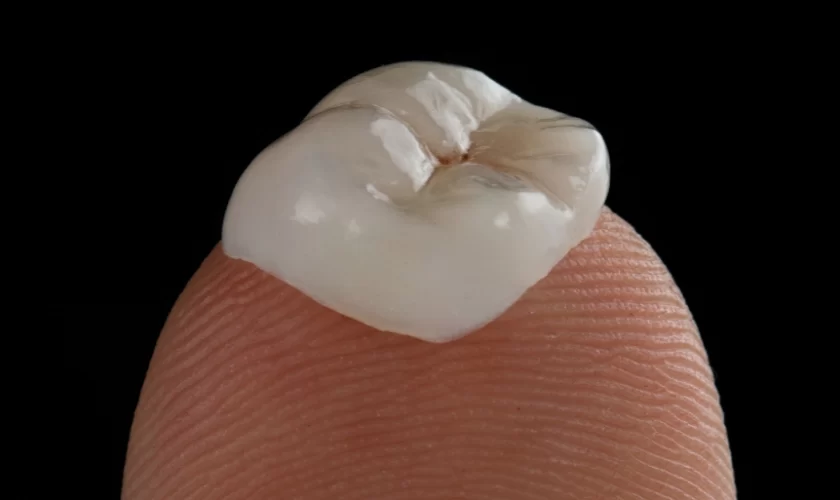
How to Avoid Dental Crowns with Proper Care: Tips for Maintaining Healthy Teeth
Dental crowns are one of the most common restorative treatments used by dentists to restore damaged teeth. However, the need for crowns can often be avoided with proper dental care. Preventing tooth decay, wear, and damage can help you maintain your natural teeth for a lifetime. In this article, we’ll explore how to avoid dental crowns through effective oral hygiene habits, lifestyle choices, and proactive dental care. By taking the right steps, you can significantly reduce the chances of needing dental crowns while keeping your smile healthy and strong.
- The Importance of Proper Dental Care
- How to Prevent Dental Crowns with Proper Care
- Maintaining Good Oral Hygiene to Protect Teeth
- Protecting Teeth from Damage and Wear
- Diet and Lifestyle Factors That Impact Dental Health
- The Importance of Regular Dental Visits
1. The Importance of Proper Dental Care
Proper dental care is crucial in preventing the need for dental crowns, as crowns are often used to restore teeth that have become weak, cracked, or decayed. These restorative treatments can be costly, time-consuming, and require multiple visits to the dentist. However, by maintaining a solid oral hygiene routine and adopting a proactive approach to your dental health, you can avoid many of the issues that lead to crowns.
One of the main reasons people need dental crowns is due to tooth decay, which occurs when bacteria in the mouth produce acids that erode tooth enamel. When enamel is damaged, it can expose the softer tissue underneath (the pulp), which may result in infection or further tooth damage. Regular brushing, flossing, and visits to your dentist are the most effective ways to prevent tooth decay and avoid the need for crowns.
2. How to Prevent Dental Crowns with Proper Care
Preventing dental crowns starts with taking proactive steps to care for your teeth every day. Here are some essential tips that can help:
- Brush Your Teeth Properly: Brush your teeth at least twice a day using fluoride toothpaste. This helps remove food particles and plaque that can cause tooth decay. Use a soft-bristled toothbrush and gentle, circular motions to avoid damaging your enamel.
- Floss Daily: Flossing is essential to remove plaque and food debris from between your teeth where your toothbrush may not reach. Regular flossing reduces the risk of cavities in hard-to-reach areas, preventing the need for crowns.
- Use Mouthwash: A good mouthwash can help reduce plaque buildup and bacteria in your mouth, promoting healthier teeth and gums. Consider using an antibacterial mouthwash to provide extra protection against decay.
- Limit Sugary and Acidic Foods: Sugar and acid can erode tooth enamel and contribute to tooth decay. Limit sugary snacks, sodas, and citrus fruits to protect your teeth from damage. When you do consume these foods, rinse your mouth with water afterward to neutralize acids.
By following these simple steps, you can greatly reduce the risk of dental issues that may require crowns, such as decay and weakened enamel.
3. Maintaining Good Oral Hygiene to Protect Teeth
Maintaining good oral hygiene is essential to prevent the need for dental crowns. Good oral hygiene doesn't just involve brushing and flossing—it also includes keeping your mouth clean and healthy by following other important habits:
- Choose the Right Toothbrush and Toothpaste: A toothbrush with soft bristles will clean your teeth effectively without causing damage to your gums or enamel. Also, choose a toothpaste with fluoride, which helps strengthen tooth enamel and prevent cavities.
- Regularly Replace Your Toothbrush: Over time, the bristles on your toothbrush wear down and become less effective. Replace your toothbrush every three to four months or sooner if the bristles are frayed.
- Consider Using a Dental Sealant: Dental sealants are a protective coating that is applied to the chewing surfaces of your back teeth to prevent cavities. This simple procedure can help protect vulnerable areas of your teeth from decay.
Good oral hygiene helps protect your teeth from cavities and damage, reducing the need for crowns and ensuring long-term dental health.
4. Protecting Teeth from Damage and Wear
In addition to preventing tooth decay, protecting your teeth from physical damage and wear is key to avoiding the need for dental crowns. Here are some steps you can take to prevent tooth fractures, chips, and wear:
- Wear a Mouthguard: If you play contact sports or grind your teeth at night, a mouthguard can help protect your teeth from impact and damage. Grinding your teeth (also known as bruxism) can wear down enamel and lead to cracked or chipped teeth, which may require crowns.
- Avoid Using Teeth as Tools: Many people use their teeth to open bottles, tear packages, or cut things. This can cause cracks or chips in your teeth. Always use appropriate tools to avoid unnecessary damage.
- Address Misalignment: Misaligned teeth can contribute to uneven wear, which may eventually require crowns. If you have bite issues, consider discussing orthodontic treatment with your dentist to improve the alignment and function of your teeth.
By taking steps to protect your teeth from physical damage, you reduce the likelihood of requiring restorative treatments such as crowns.
5. Diet and Lifestyle Factors That Impact Dental Health
Your diet and lifestyle choices play a significant role in the health of your teeth. Certain foods and habits can promote tooth decay and weaken your enamel, leading to the need for crowns. To maintain healthy teeth and avoid crowns, consider these dietary and lifestyle factors:
- Drink Plenty of Water: Staying hydrated helps wash away food particles and bacteria from your mouth. Water also helps maintain the pH balance in your mouth, preventing enamel erosion caused by acidity.
- Eat a Balanced Diet: Eating a diet rich in fruits, vegetables, lean proteins, and whole grains helps support your oral health. Foods rich in calcium, like dairy products, and foods that are high in fiber can help strengthen your teeth and gums.
- Avoid Smoking: Smoking is harmful to your teeth and gums. It can lead to gum disease, staining, and tooth loss, all of which can increase the likelihood of needing crowns. Quitting smoking improves overall dental health.
By adopting a healthy lifestyle and eating a balanced diet, you can significantly reduce the risk of needing dental crowns.
6. The Importance of Regular Dental Visits
Even with the best at-home care, it's crucial to visit your dentist regularly for checkups and cleanings. Your dentist can spot early signs of tooth decay, gum disease, and wear before they become serious problems that require restorative treatments like crowns. Regular dental visits are key to maintaining a healthy smile and avoiding costly procedures in the future.
During your dental checkup, your dentist will assess the condition of your teeth and provide professional cleaning to remove plaque and tartar buildup. Early intervention allows your dentist to treat small issues before they develop into more significant problems that require crowns.
In conclusion, avoiding the need for dental crowns is achievable with proper care and attention to your oral health. By maintaining good oral hygiene, protecting your teeth from damage, eating a healthy diet, and scheduling regular dental visits, you can prevent tooth decay and damage that leads to the need for crowns. Start taking proactive steps today to preserve your natural teeth and enjoy a lifetime of healthy smiles.







 East Hill Dental5.0 (156 review)
East Hill Dental5.0 (156 review) Access Dental, Dentures & Implants4.0 (426 review)
Access Dental, Dentures & Implants4.0 (426 review) Surya P. Dhakar DDS, PC4.0 (250 review)
Surya P. Dhakar DDS, PC4.0 (250 review) Sage Dental of Windermere4.0 (423 review)
Sage Dental of Windermere4.0 (423 review) Dino M. DeFilippis, DDS4.0 (10 review)
Dino M. DeFilippis, DDS4.0 (10 review) Heath Family Dentistry0.0 (0 review)
Heath Family Dentistry0.0 (0 review) The Importance of Oral Health Education During Pregnancy for a Healthy Pregnancy
The Importance of Oral Health Education During Pregnancy for a Healthy Pregnancy Best Tips for Brushing Your Teeth Properly for Healthy Gums: Essential Techniques for Oral Health
Best Tips for Brushing Your Teeth Properly for Healthy Gums: Essential Techniques for Oral Health Why Skipping Dental Checkups Can Lead to Bigger Oral Health Problems
Why Skipping Dental Checkups Can Lead to Bigger Oral Health Problems Advantages of Porcelain Dental Restorations
Advantages of Porcelain Dental Restorations How Can Diabetes Cause Tooth and Gum Problems? Preventing and Managing Oral Health Issues
How Can Diabetes Cause Tooth and Gum Problems? Preventing and Managing Oral Health Issues Healthy Habits for Promoting Good Oral Health and Hygiene: Tips for a Healthy Smile
Healthy Habits for Promoting Good Oral Health and Hygiene: Tips for a Healthy Smile